What happened to children who stayed indoors and did not touch the bugs?
Author:Shell net Time:2022.07.27
After your child is from school, you are willing to let TA lie on the ground to observe caterpillar, or let TA set up a building block at home?
The weekend is here, are you going to take your child to the mountain hiking, or do you study and paint with your children at home?
Your child is more willing to stay in the natural environment or in an artificial environment?
Children are playing outdoors indoors, seemingly trivial. However, allowing children to live in a clean, orderly, and intelligent artificial environment for a long time may not be the best love for TA.
Under the influence of factors such as moving, illness, further studies, epidemics, electronic equipment, children's time in nature has decreased sharply, and psychological problems such as depression, attention defects, obesity, and other psychological problems are more likely to occur. Moreover, these problems will not disappear over time, but become "natural disorders."
What happened to children in the room for a long time?
I have met a teenager who has become depressed because of nature away from nature, which is his story.
(Note: In order to protect the privacy of the visit, the visits and the work content have been fuzzy, and the visit has been obtained and the parents are authorized.)
The 12 -year -old little A was pushed to the consultation room by his parents.
The reasons for their visit are not fresh: the results of the sixth grade in the sixth grade have dropped sharply in the simulation test, making their parents very anxious and worried that their children cannot be promoted to key middle schools. To this end, Xiao A's parents signed up three extra -curricular "promotion classes" and moved to the "old -fashioned" school district house closer to the school.
But in this way, Xiao A's results did not rise and fall, from the top 10 in the class to the middle and lower reaches.
Parents believe that children may be able to improve their achievements through psychological counseling.
In the communication with Xiao A, I gradually learned that before school, he always squatted in the corner of the community to watch the ants move; in elementary school, he often went to the forest park with his classmates to see Spider Weaving, Beet Fighting, Cuifeng Butterfly ask for puppet ...
Occasionally a decline in results made Xiao A's parents feel anxious. Parents began to strictly restrict the time of small A outdoor playing. Little A's daily life became a two -point line of school and home, often staring at the window and dazed.
In the future, Xiao A's daily activities have become less. If you ca n’t be interested in eating, you ca n’t sleep well.
Unfortunately, Xiao A obtained from his parents, almost all accusations about his learning status and test results.
The case of small A basically belongs to the "natural lack of obstacles".
But he is by no means.
As early as 2013, a report from the Shanghai Oasis Ecological Protection and Exchange Center pointed out that among more than 1,300 children surveyed, 12.4%of children have a tendency to naturally lack of disorders, inattention, emotional regulation ability and emotional regulation ability and emotional regulation ability and emotional regulation There are poor environmental adaptability, lack of curiosity about nature, etc. [1].
Stay away from nature, the problem is more serious than expected
The concept of "Natural Lack of Dorisher" was proposed by Richard Louv in 2008 in the book "The Last Children in the Forest".
Love emphasized in the book that natural deficiency is not a disease that requires a doctor to diagnose or take medicine, but a phenomenon of danger in the current society [2].
It sounds a bit illusory and a little mysterious? Does it really have such a obvious impact on people's health?
Yes, many studies have given a positive answer.
Researchers quantitatively changed their attention from low -quality natural environments to high -quality natural environments.
The results showed that the ability to cognitive children after moving greatly increased, and the ability to focus on concentratedly increased by 19%compared to before moving. [3]
What if the child's class is moved directly into the natural environment?
Researchers divided 37 kindergarten children into two groups and studied in indoor classrooms and outdoor natural classrooms.
Six weeks later, researchers found that compared with children studying outdoors, children studying indoors re -directed behaviors 33%more -this means that children with indoor learning are more difficult to concentrate and easier to focus on, easier Walking from the current task [9].

The left side is an indoor classroom; the right side is an outdoor natural classroom. The children are sitting on the carpet, and the surroundings are tires, potted plants, and stumps are surrounded by references [8]
Contact the natural environment also has obvious benefits to adults.
Researchers divide 112 college students into two groups and participate in tasks in the natural environment and urban environment [4].
The study found:
· After the blood pressure is increased by exercise, the participants who walk in naturally have a lower blood pressure, and the blood pressure of the trees can be seen -this often means a more relaxed state;
· People who walk in the natural environment have more positive emotions than those who walk in the city, and the emotional changes before and after walking are more significant;
· After walking in the nature reserve, people's anger and aggressiveness have declined, but the anger and aggressiveness increased after walking in the city.
The reason is not metaphysics.
From a biological perspective, compared to steel cement cities, people instinctively get closer to lush forests and natural soil atmosphere. Contact with nature is a healthy environment for human beings, which makes people feel kind and relaxed [5].
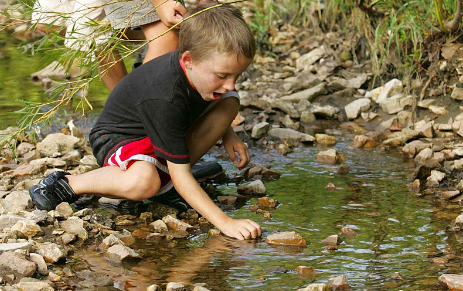
Children who play on the edge of the stream 丨 Wikimedia Commons/U.S. Fish and Wildlife Service
From a psychological point of view, contact with the natural environment can make us feel less pressure. When we see the natural environment, the area with a low utilization rate in our brain is activated and the attention is transferred from the source of pressure. The sense of urgency of our inner heart reduces a lot [6,7] -after all There are few things that make people feel stressful, and this gives the brain the time to "refresh" and "upgrade".
Facing the sea, I don't want to 丨 Wikimedia Commons/Brookie
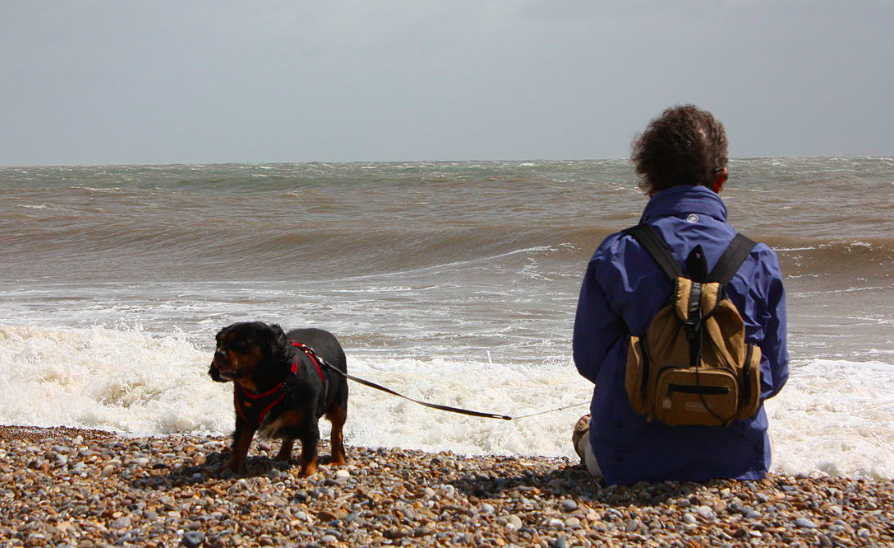
Who took away from the child?
But now the children spend too little time and too little in nature!
Take the third -year students in Beijing today as an example. Under the comprehensive influence of academic pressure, epidemic influence, and electronic equipment, children can walk around the community park every day for about 0.5 hours every day after school; it is ranging from nearby parks on the weekend, ranging from nearly half a day; summer vacation can be Going to Beijing's Huairou Yanqing and other suburbs to play for about 3 days.
This is almost all the time for a 10 -year -old student to contact nature, and it is also based on the situation where the parents of both workers are free.
Who and what are the lack of nature in the child's life?
Parents' pressure is transmitted to children
We return to the story of Xiao A.
The trouble of Little A is not completely the parents' fault.
In the communication with this family, I strongly feel the huge social pressure behind the young parents. Even though parents really want their children to grow up happily, the pressure on themselves is transmitted to the parent -child relationship:
Parents have worked hard for many years to buy a school district house, so the academic expectations of Xiao A have become higher;
Friends' children have reported seven or eight interest classes, and my children cannot fall;
Looking at the son Jackie Chan, my parents hope that Xiao A can go to a better university. Perhaps the pressure of life in the future will be smaller ...
This is the epitome of many families. Under such social pressure, playing games, relaxation and fun are not encouraged, and closeness naturally has become a luxury.
The concept of natural danger
With the process of urbanization, the natural environment is becoming more and more considered "full of danger."
Although toxic creatures, geological disasters, and turbulent water flow are dangerous, but we seem to be too vigilant to avoid toxic animals and plants that can avoid danger.
There is such a conversation in the documentary "Little Boy":
"Why do you like bugs?"
"Because the family hasn't scared him."
Not all children are born to be afraid of worms, and not all bugs are dangerous 丨 Tuwa Creative
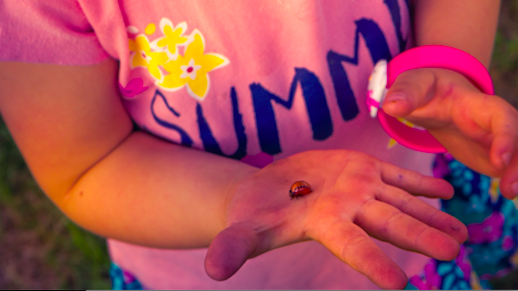
Children actively stay away from nature
Many children choose to stay away from nature by themselves.
Compared with the happiness obtained in nature, the happiness brought by short videos and games is faster and more feedback. For most children and adolescents, the sense of accomplishment brought by the game brings more than observing the sense of accomplishment brought by natural activities such as insects.
The 2 -year -old child is obsessed with smartphones, it is no longer a new thing 丨 Wikimedia Commons/Andi Graf
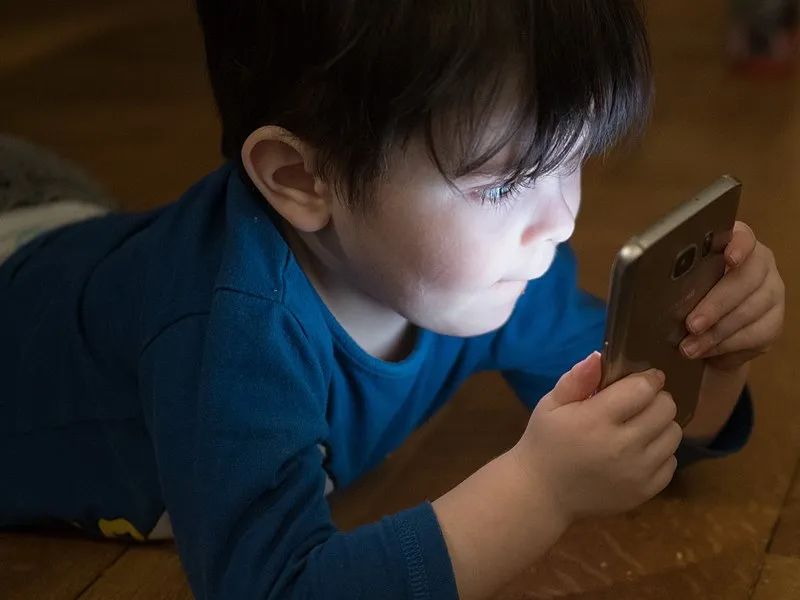
Parents are basically dual -employees today, and their children are brought by their ancestors. The old man often uses more feelings and rationality. [7]. If the child originally wanted to play games at home, many elderly people were unwilling or difficult to interfere.
What can the parents of the two workers in the epidemic do?
I understand the difficulties of my parents: go out in the morning and go home in the evening, sometimes working overtime on weekends; basically no long vacations can accompany their children; since the epidemic, let alone travel around the country, sometimes it is difficult to go out of the community.
But as a parent, you may try the following suggestions to allow children to build a better relationship with nature and enhance their children's attention and happiness.
Buy natural picture books and books for children, such as "The Prank of Blints", "The Gibbon on the Kindergarten" and "The Voice of Natural" series of illustrations.
Seize every opportunity to observe nature, such as the ant cave under the willow tree, the bird's nest on the roof, the exciting corner of the forest.
Create a natural angle with children at home, can plant family potted plants, water lilies, vegetables, or raising goldfish, turtles, ants, etc.; Some children's popular science books and magazines have introduced them to read them together.
Let go properly, take children or let children participate in regular, organized extra -curricular activities, such as forest camping, natural museums to visit.
Practice with your children, feel the feeling of wind blowing, listening to the sound of the leaves, and explore a new way of feeling the surrounding environment.
By the way, how is our little A classmate?
Xiao A's family slowly realized what contact naturally to Xiao A means.
After discussing with his parents frankly, Xiao A has 10 minutes to play outdoors every day. At the same time, parents agree that Xiao A can browse the related information of insects and natural environment 20 minutes a day, and use natural white noise to help sleep.
It's amazing, and maybe not amazing.
Soon, Xiao A's sleep improved, and he became less in class. Little A can try to re -invest in learning, and also gains recognition from his parents.
Little A's mother recently said to Xiao A: "You can make a plan with us, and then go to the park downstairs in accordance with your plan."
You push open a window to nature, and the knot may be opened.
Figure 丨 pixabay
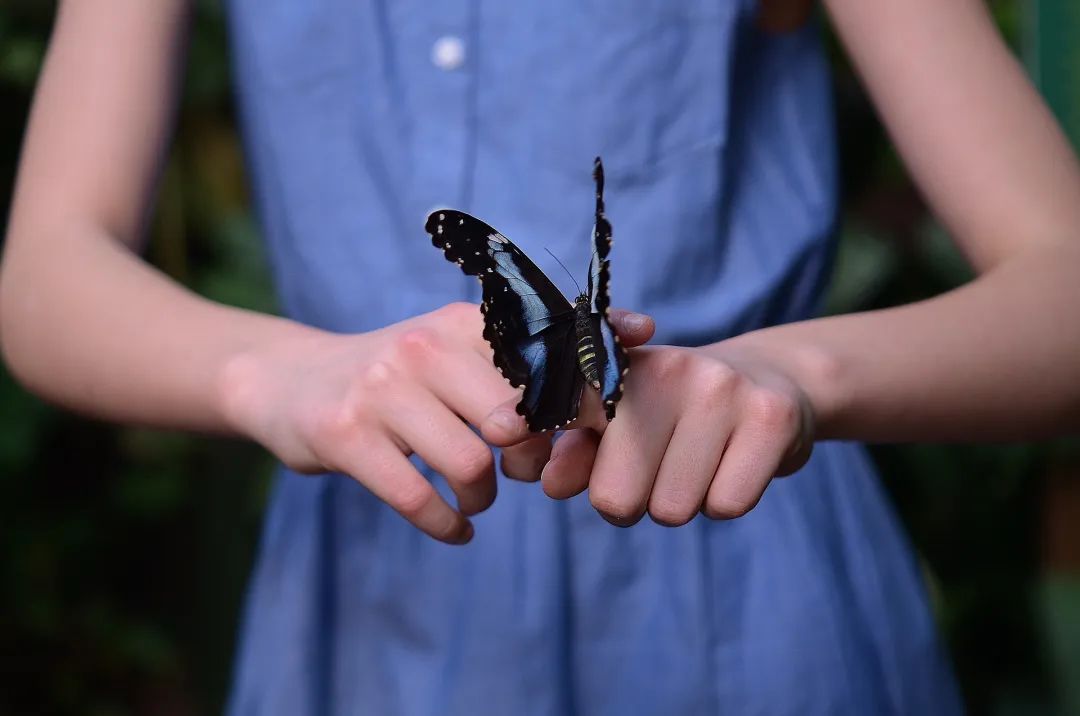
references
[1] Zhou Yi, "12.4%of children have a tendency to" Natural Deficiency ", China Youth Daily, 06 version on May 16, 2013 [2] Louv, R. (2008). Last Child in the Woods: Saving Our Childrenren From Nature-DEFICIT DISORDER. Algonquin Books.
[3] Wells, n. M. (2000). At home with nature: Effects of "Greenness" on Children ’s COGNITIVEFTIONG. Environment and Behavior, 32 (6), 775-795...
[4] Hartig, T., Evans, G. W., JAMNER, L. D., Davis, D. S., Gärling, T. (2003). Tracking RESTOTION in Nature and Urban Field Settings.Journal of Environmental Psychology, 23 (2), 23 (2), 23 (2) Then, then, then
[5] BUSS, D. M. (1995). Evolutionary psychology: a new paradigm for psychology science.psychological, 6 (1), 1-30.
[6] Frumkin, H. (2001). Beyond Toxicity: Human Health and the Natural Environment.american Journal of Preventive Medicine, 20 (3), 234-240.
[7] Largo-WIGHT, E. (2011). Cultivating Healthy Places and Community: Evidenced-Based Nature Contact Recomrations.Internal of Environmental Health Resece Health Resece
[8] Liu Tiefang. (2012). The essence of natural education and the reconstruction of education possibilities. Contemporary Education Forum (01), 1-11.
[9] LARGO-WIGHT, E., Guardino, C., Wludyka, P. S., Hall, K. W. WIGHT, J. T., Merten, J. W. (2018). Nature contact at school . International Journal of Environmental Health Research, 28 (6), 653-666.
[10] Duan Feiyan Li Jing. (2012). In the past ten years, the study of intergenerational education at home and abroad. Shanghai Education Scientific Research (04), 13-16.
Author: Guo Lanxin
Edit: Li Xiaogui
- END -
Tomorrow, the ancient city of Lijiang will open a national style ceremony!
In recent years, the term national style has become synonymous with the five thous...
Can beauty needles carry entry?

The answer is: No!Video tells you whyJPEG Webkit-Playsinline Related Reading:Whe...